From Doubt to Photographic Treasures and Moqueca
Adventures Deep in the Interior of Brazil
When I lose my sense of what to photograph in Brazil, I look to two things: the chaos of celebration, and the quiet persistence of fishermen. Carnival grabs the headlines, but it’s the lives connected to the water that hold my attention. I’ve called it an obsession—but it’s more than that.
Fishermen are like an indicator species. They tell you more than the health of the river—they reveal the state of a place, its people. A kind of pulse.
When I arrive in a village and see nets drying, boats on the water, men casting lines—I know the river is still alive. There’s food, work, and a tether to nature that hasn’t been cut.
And there are always stories. These are people I admire. Hard lives, close to the land. I respect that. Sometimes I even think I want to live more like them.
I looked at the map again. Which villages still rely on the river? Where could I find what I was after?
I asked ChatGPT. I’ve been experimenting. Got a few suggestions.
But theory’s not reality.
The first village looked promising—at least on the map, and from the scraps of info I’d gathered. When I arrived, two kids were swinging in a hammock beneath a tree by the river. A simple, timeless scene. Poetic, almost. But as soon as I pulled up, they ran. In the end, I got a photo of some boats, a cart, and a pair of vultures.
The next village had no fishing at all. Just dust and a boy chasing cows.
I stopped a man on a motorbike. “Where do they still fish around here?”
“Barra de Cruz,” he said. Just thirty minutes away.
We drove 15 kilometers down a dirt road, deeper into nowhere. Near the village entrance, I asked someone where the port was. They looked puzzled. I explained—roughly—that I was documenting life along the São Francisco River.
They pointed, vaguely. “That way.”
A low-hanging cable stretched across the road—too low for the camper to pass. A boy appeared with a long stick, the kind used to knock down coconuts. He lifted the line for us, then walked ahead, guiding me to the water.
There wasn’t much. A few wooden boats. Muddy riverbank. No one coming in that evening, but they’d be back in the morning.
Too late to drive elsewhere. Tanya and Mia stayed in the car with the AC—it was brutally hot outside. The village had two streets. I decided to go for a walk.
I talked to the first man I saw. Told him my plan. He said the fishermen head out around 7 or 8 a.m. Kids gathered nearby, curious. I asked, “Not many foreigners come through here, do they?”
He looked at me, a little lost. “No. Just you today… and no one else before.”
Remote. Isolated. The kind of place most Brazilians haven’t even heard of. We had the strange honor of being the first outsiders.
That evening, I photographed kids playing football. One girl stood by a house, bathed in golden light. I took the shot on instinct. Only later did I see the shadow on the wall—another girl, mid-jump, arms up, hair flying. Not hers. A strange, beautiful accident. A small, surreal gift.
I woke at 5:45 the next morning. In the countryside, time bends. I didn’t want to miss anything. But by the time I looked out, the last fisherman was already gone.
I walked around. The fishermen were gone—not just from the port where I’d slept, but from the other one too. The village was quiet. I saw only one familiar face—the man from the evening before, just finishing milking his cow.
For the first time in Brazil—a country that had felt warm and open, I felt deflated. Had I been tricked? Had my luck finally run out?
It’s strange how the mind works. One small thing feels off, and suddenly you start to spiral. Why did I even come here? Maybe they don’t want visitors. Maybe I’m intruding. What’s the point of all this?
I started packing. There was a Zoom call later. Maybe it was time to move on.
Then a modest old car pulled up beside our camper. A man stepped out, hesitant. “I feel shy talking to you. Sorry to disturb you,” he said. “But I wanted to tell you… there’s a beautiful beach by the dunes. You can’t reach it this time of year, but I thought you should know.”
It was a small gesture. Maybe pointless. But it shifted something. Maybe I wasn’t unwelcome—maybe they were just shy. This was their small, self-sufficient world and I was the outsider.
Around 7, I spotted a fisherman in the distance. I walked over. He had two large fish. He cleaned them at the river’s edge in his boat. The light was perfect. I took what may be my favorite shots of the past few days.
A pig wandered down to the water, waiting. It knew the routine. The man tossed the guts into the river. The pig waded in after them.
It was quiet. Raw. Real. The kind of moment you wait for.
His name was Catarino. He’d been out just an hour. Caught three fish. Enough to eat. One to sell.
Just like that, the morning turned. The doubt faded, replaced by a quiet satisfaction—the kind you feel when you find something. I was happy. Like I’d uncovered a small photographic treasure.
After the Zoom meeting, Tanya told me there was more activity at the other beach.
I drove over. More boats. Young fishermen with a big catch. They were cleaning fish, surrounded by pigs and vultures. It looked almost post-apocalyptic. But honest. Photogenic in its own strange way.
One of the men looked up. “Do you have a bag?”
“No.”
“I’ll get you one. Take some fish.”
They gave me five kilos. Just like that.
Later, we had it made into moqueca—a Bahian stew rich with coconut milk, tomato, garlic, and coriander. We ate it at a small restaurant in a larger village nearby.
A day that began in doubt ended full of generosity, heat, light—and the kind of moments you can’t plan for.
I’m loving these journeys. Falling harder for this country. Especially the forgotten corners. I feel like I could do this for years.
P.S. Above is the village of Barra de Cruz. You can see how small it is and how isolated it is, and maybe you can even spot our camper closer to the shore of the river.

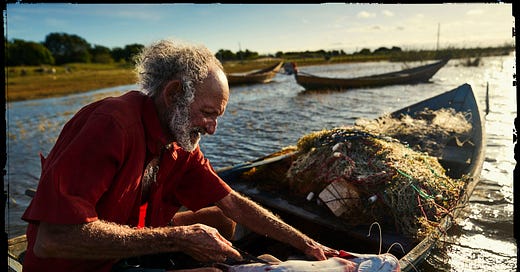


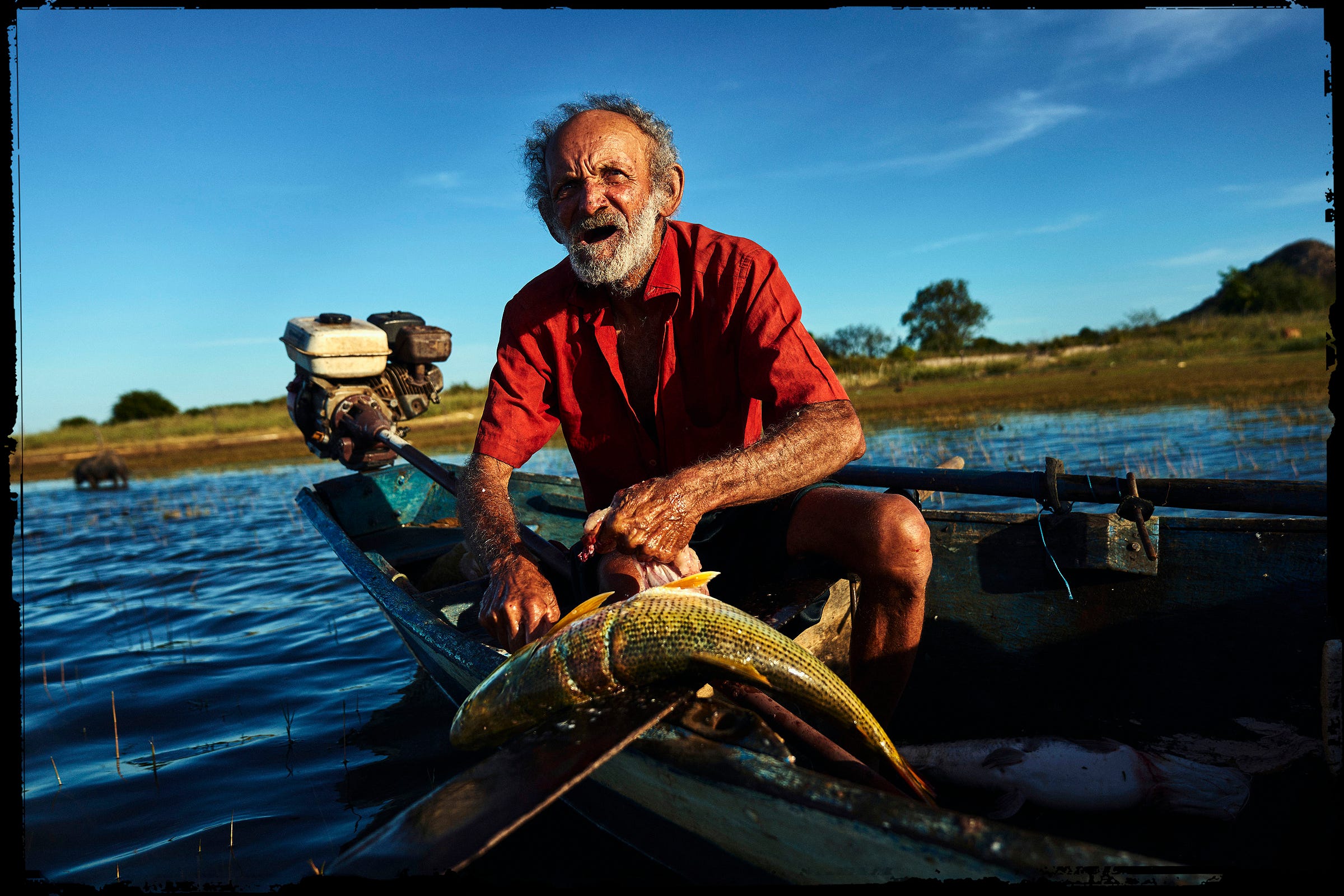
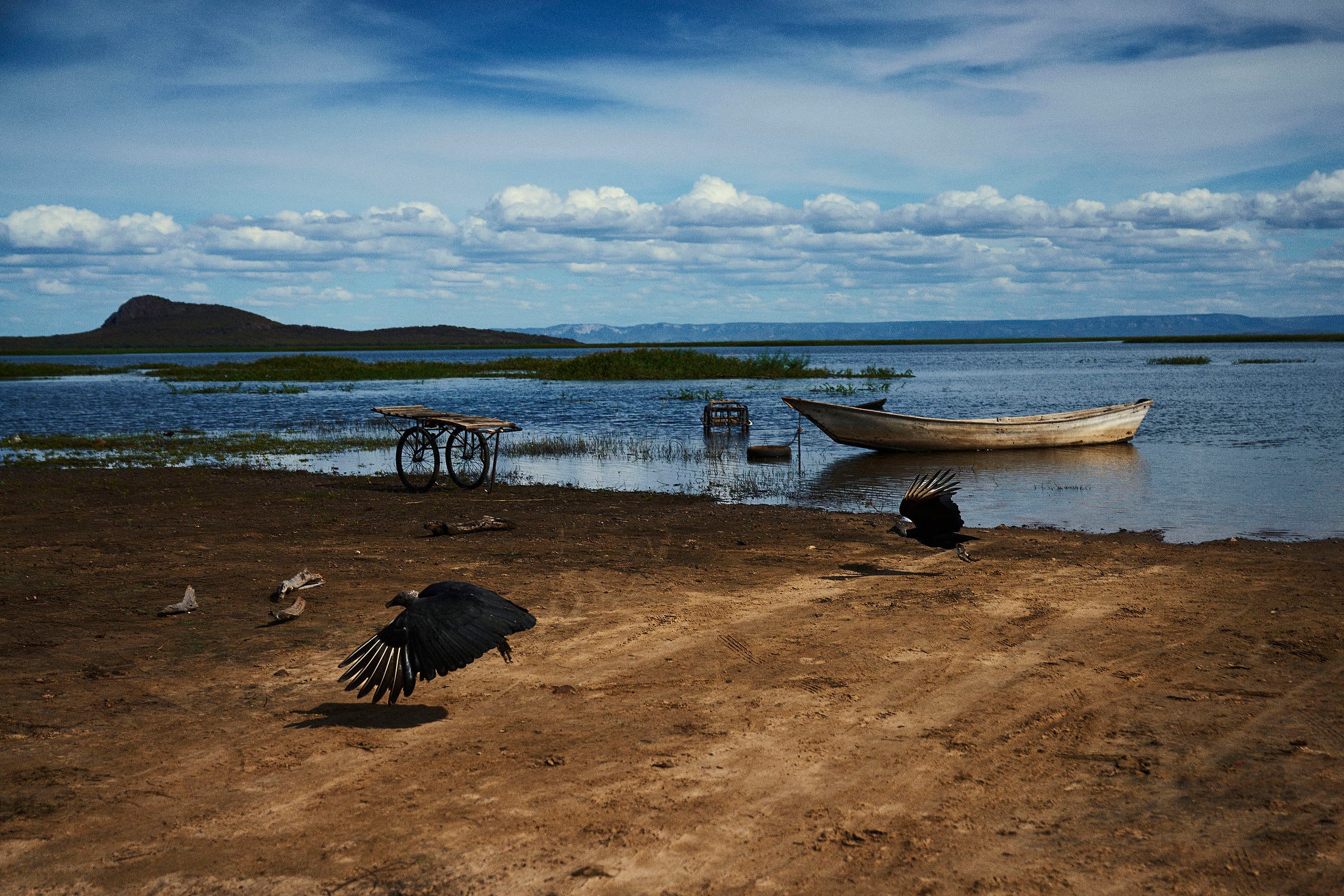
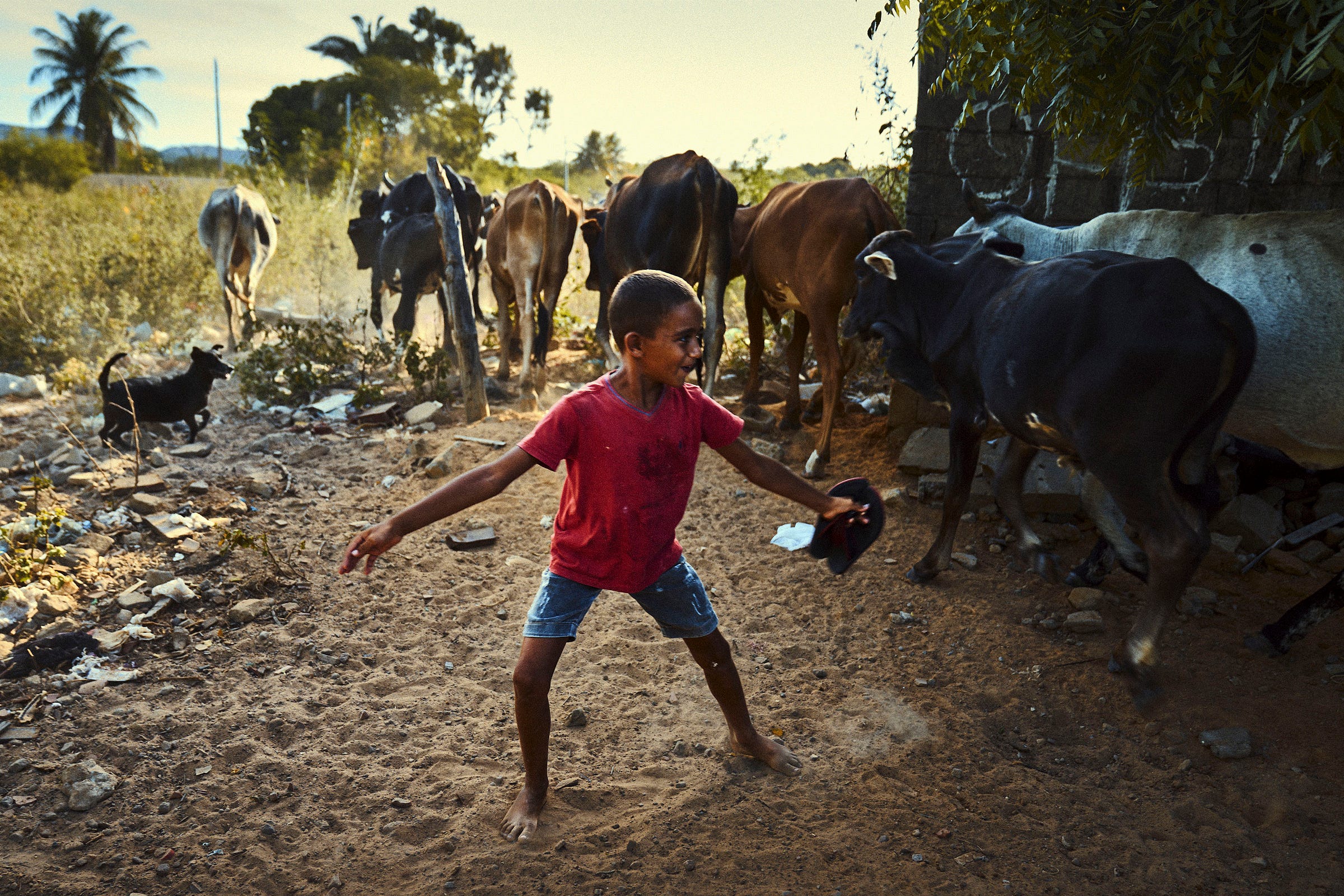
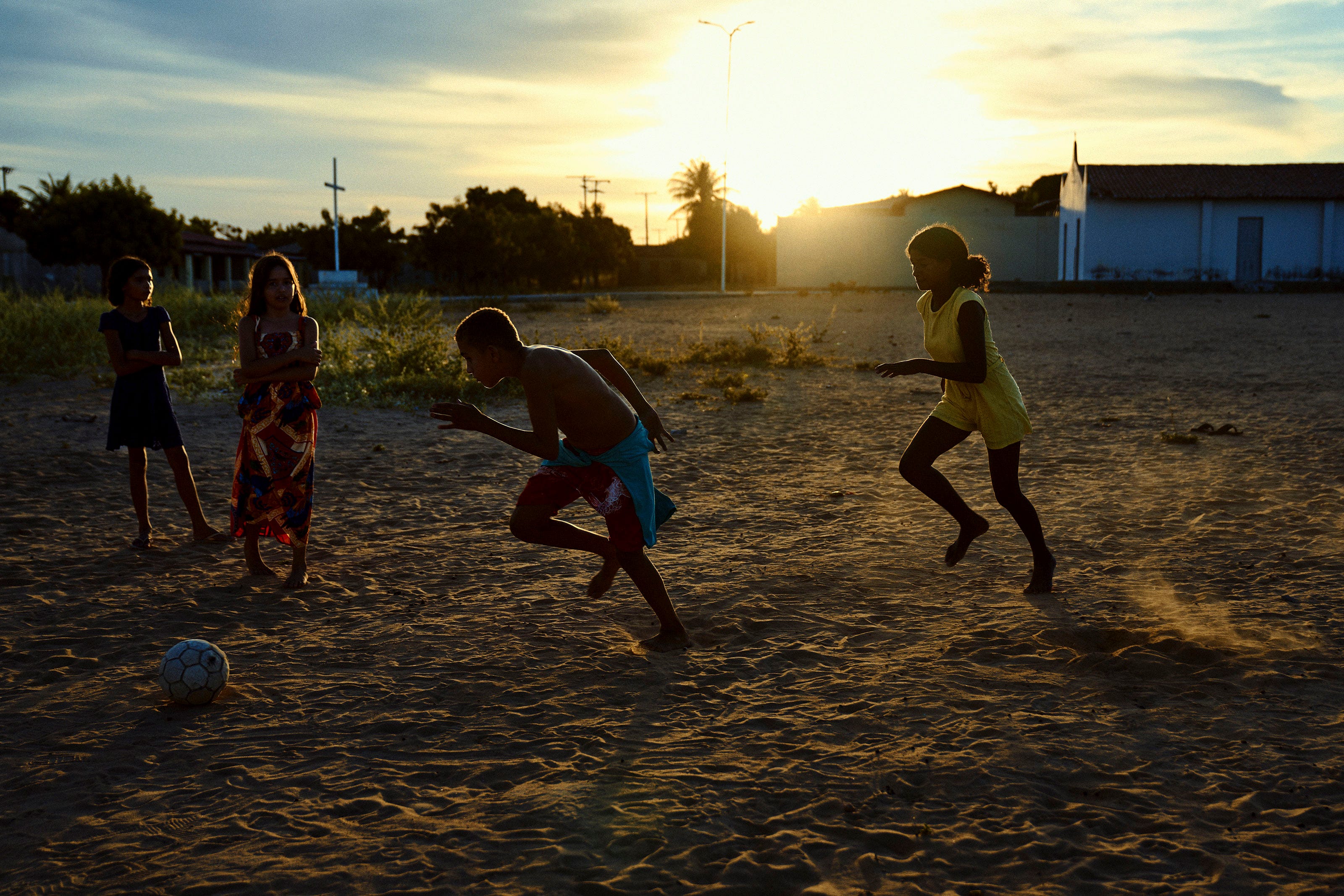
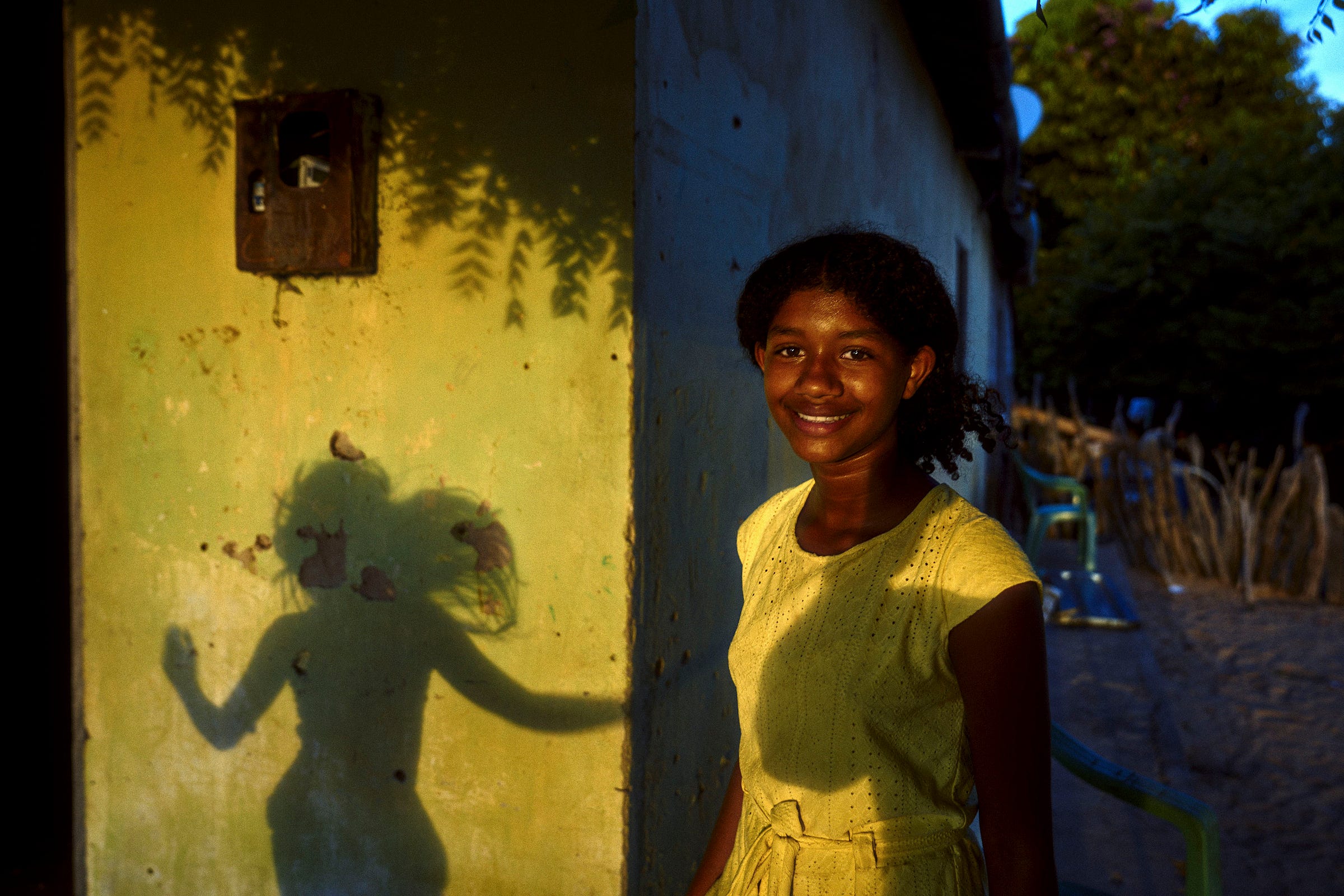
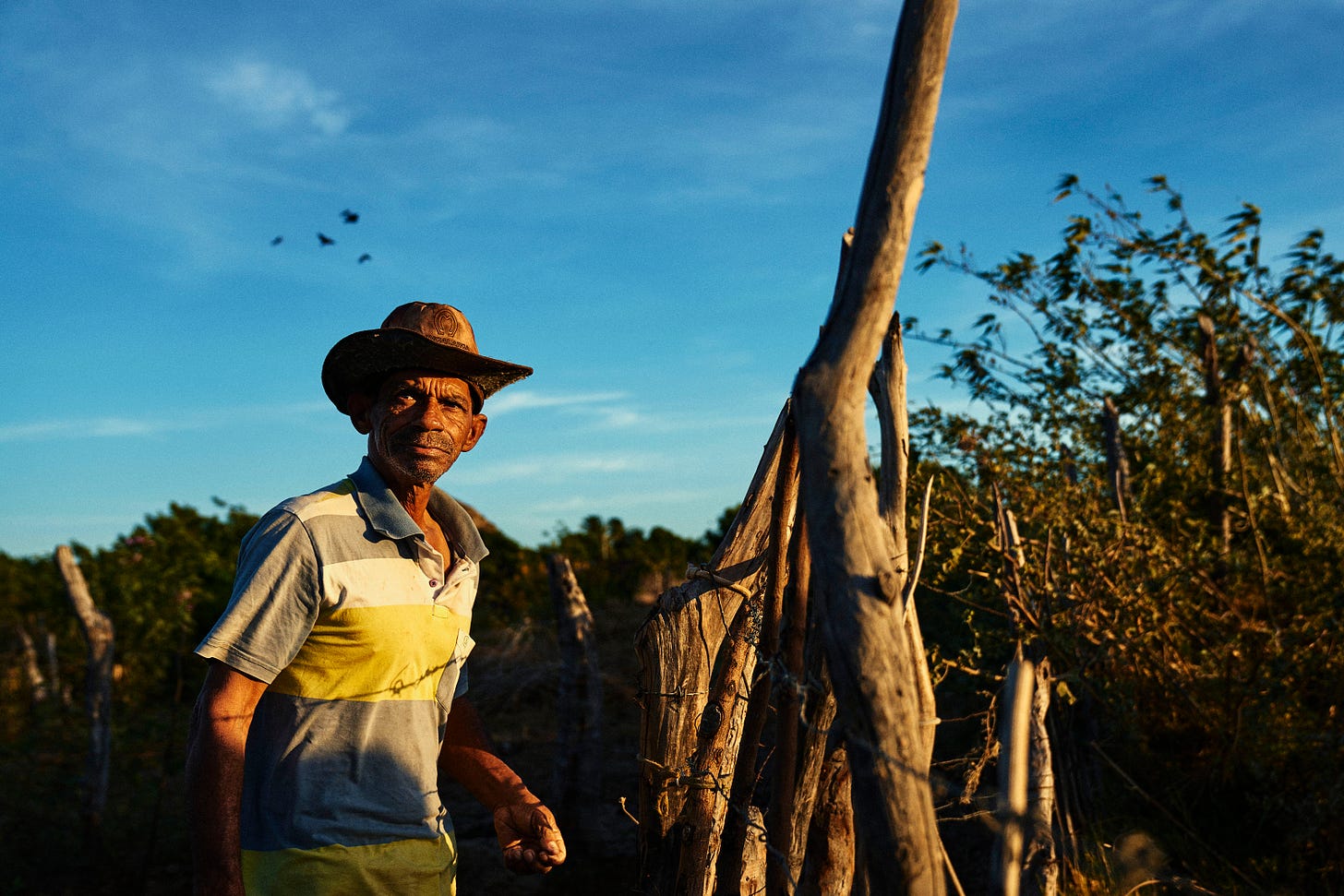
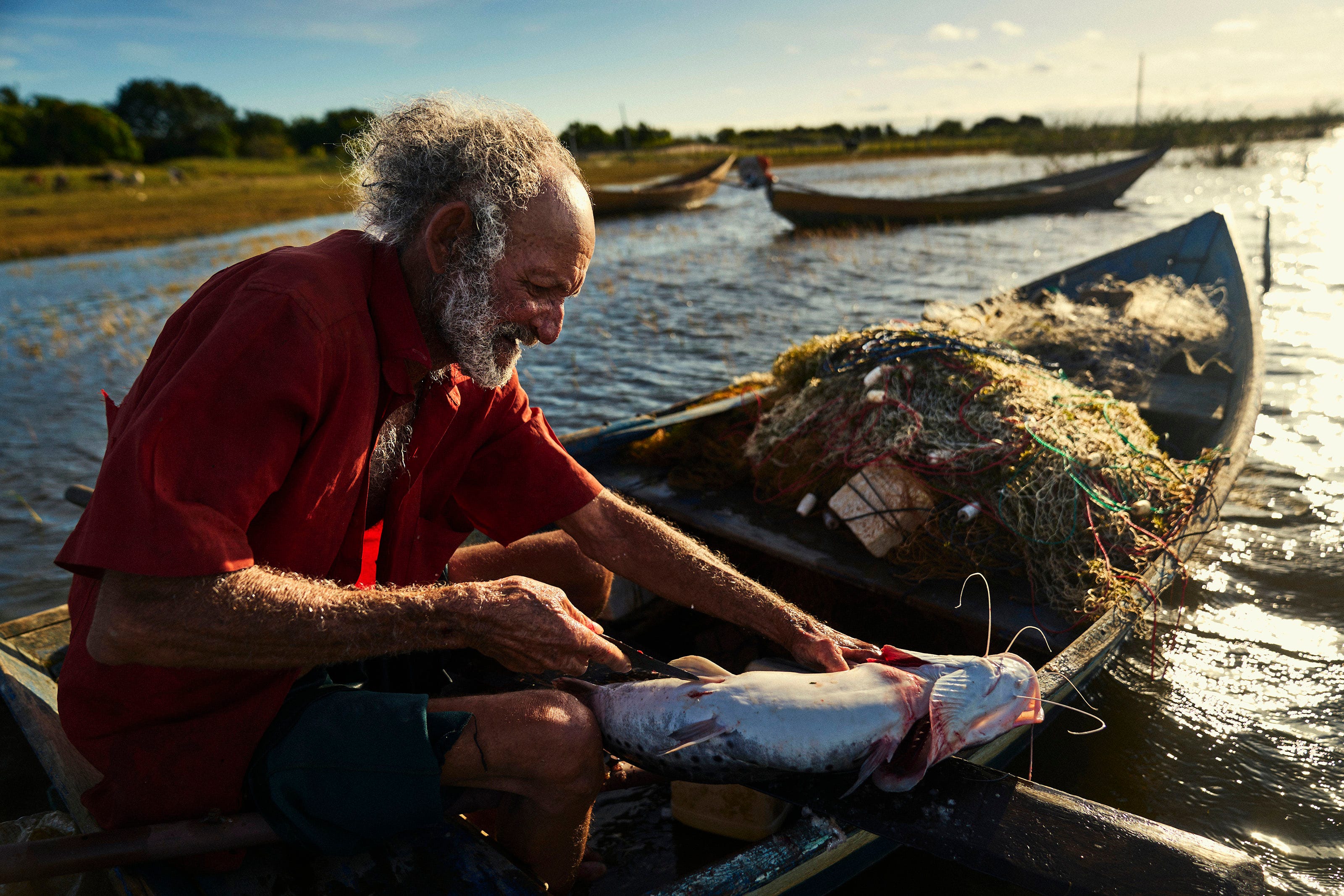
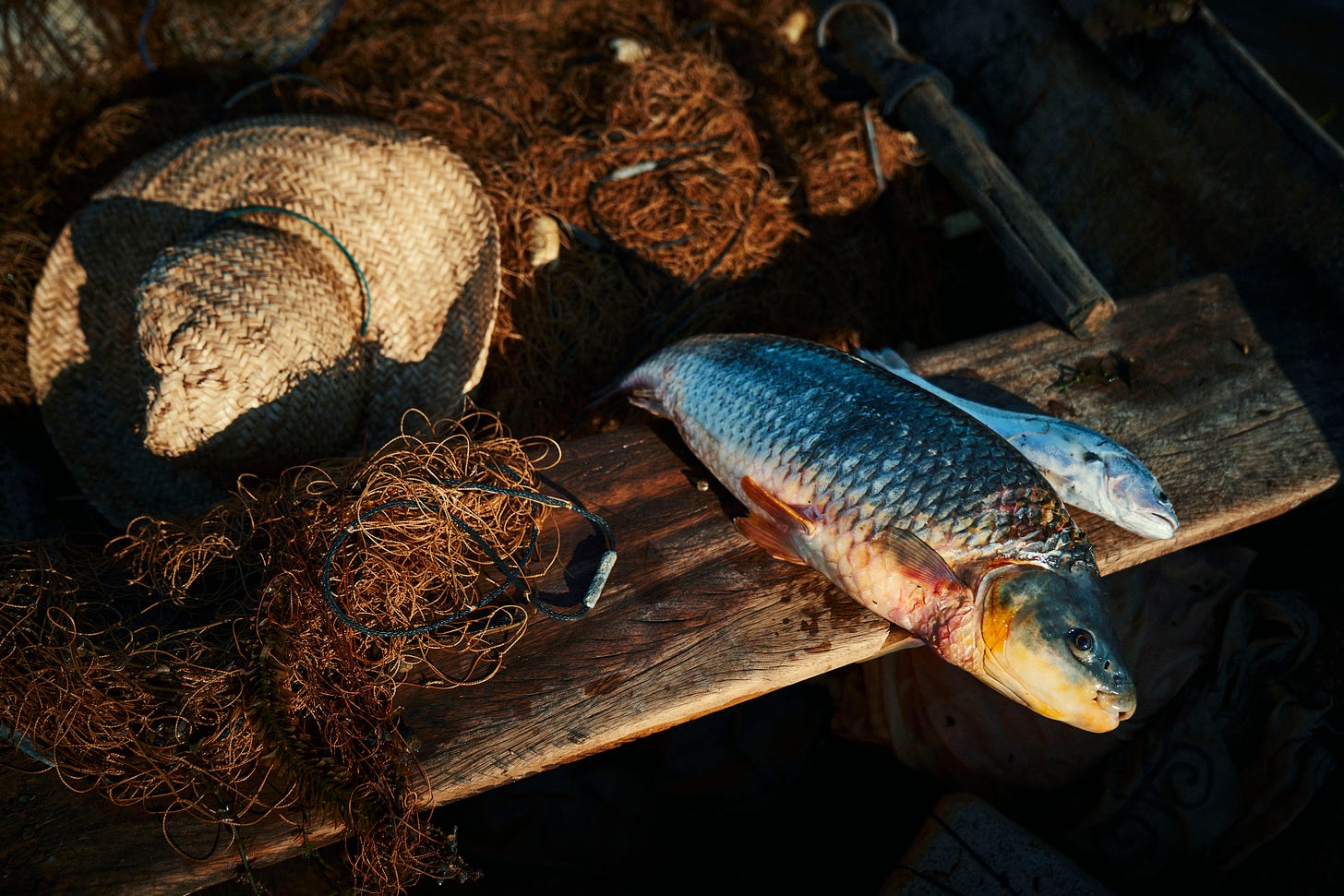
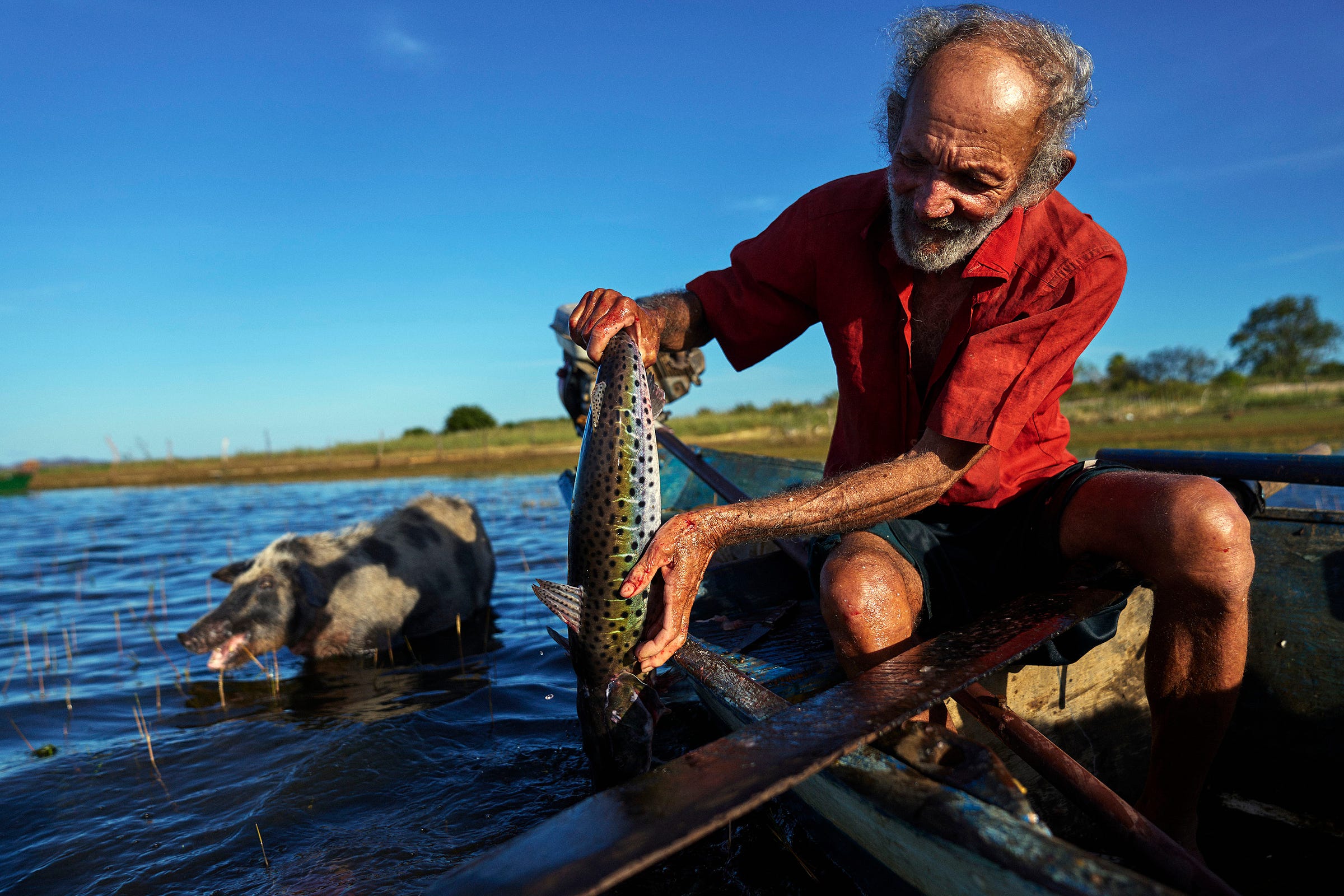
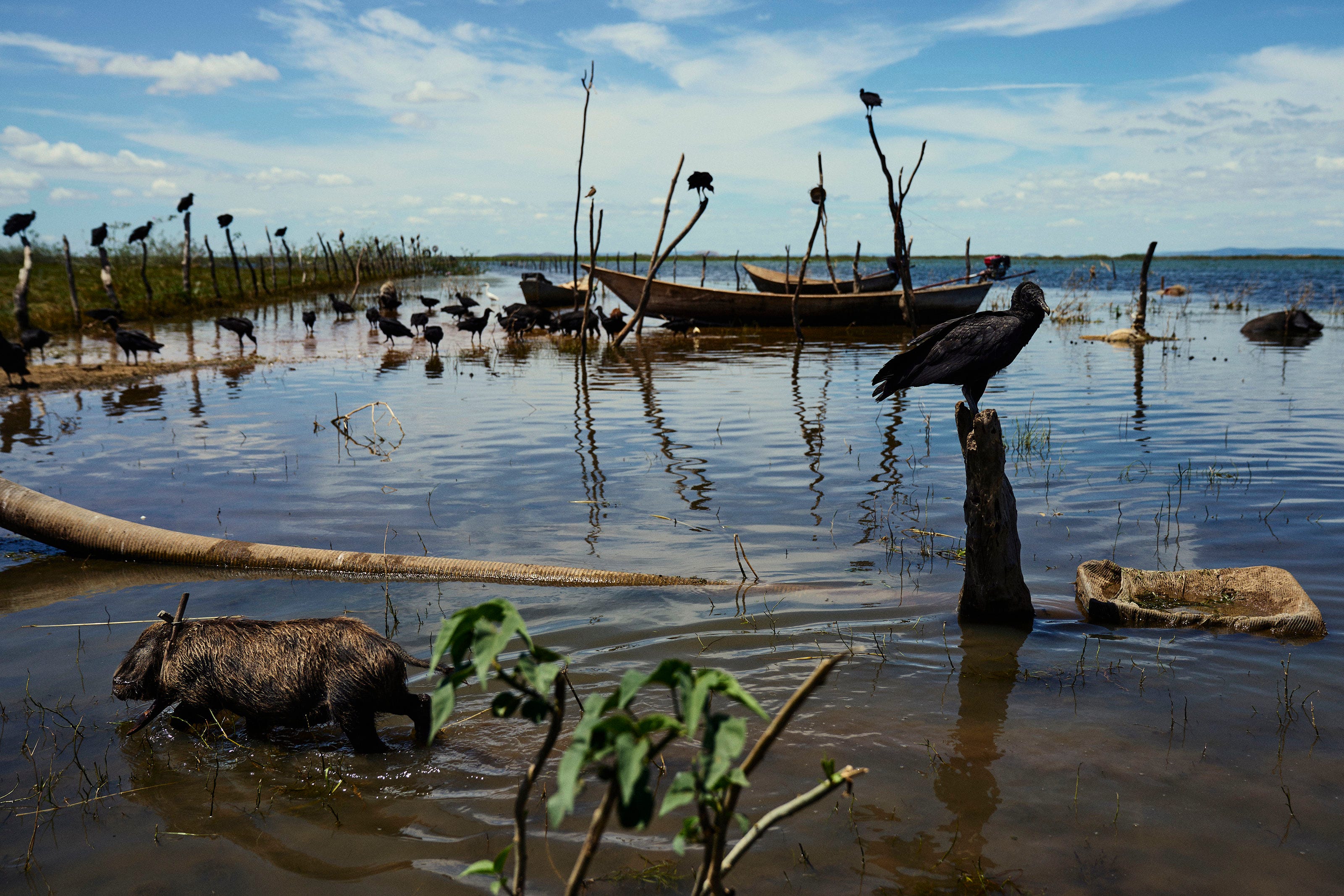
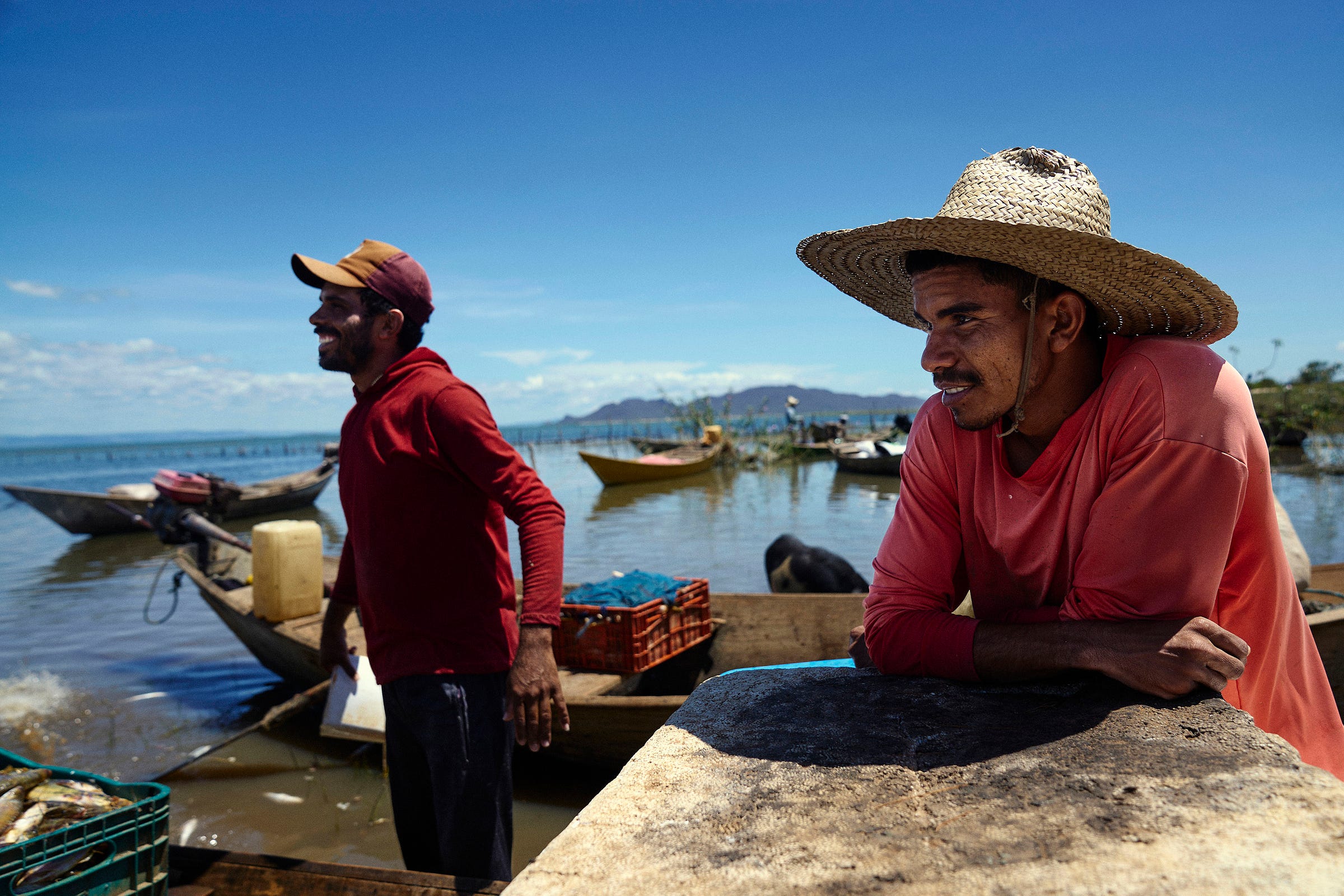

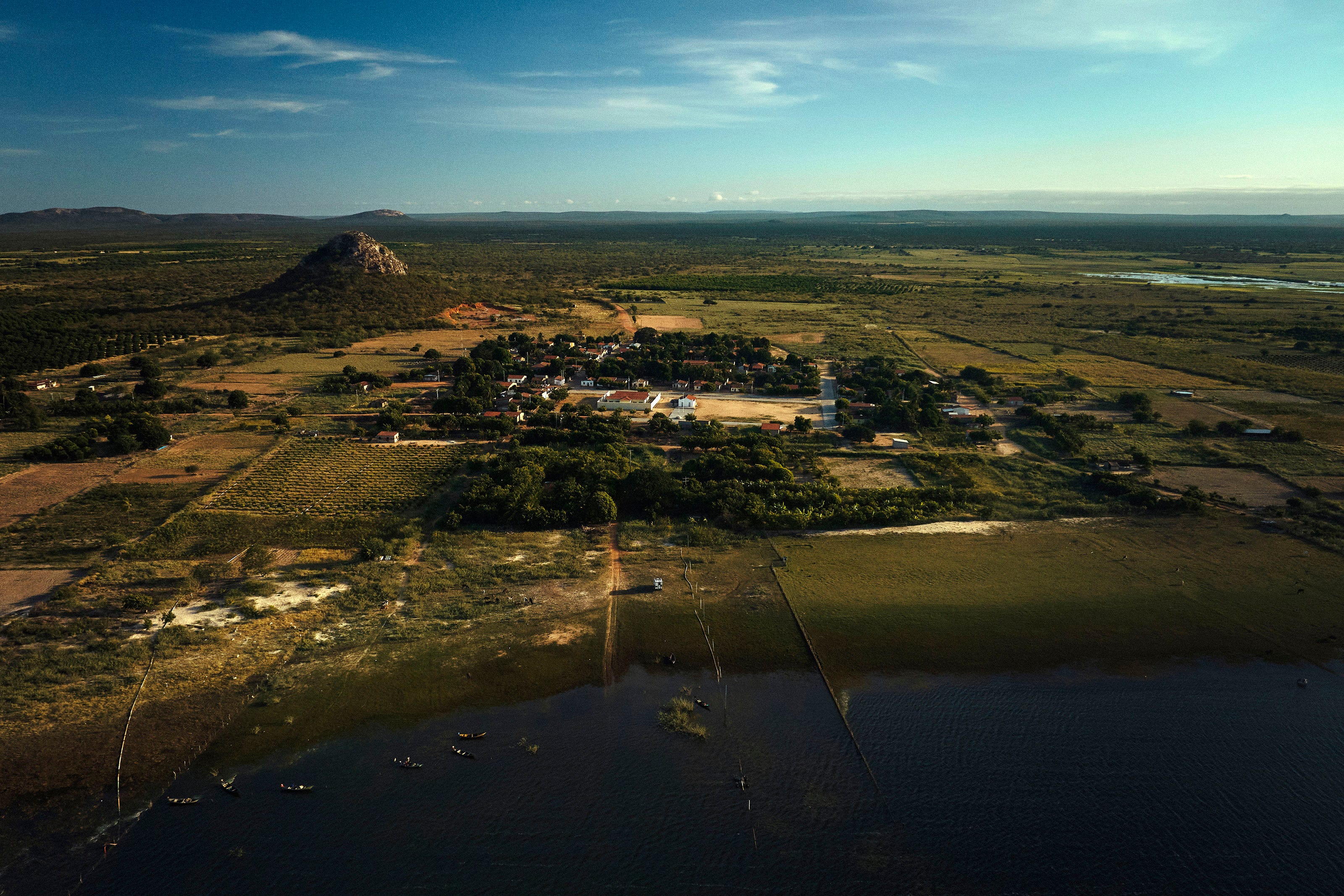
I watched your vid about using Substack instead of IG. It doesn’t disappoint and I truly enjoyed the pics and story about this quaint town
I didn't realise you're here on Substack till I saw this, Mitchell.
There's a peace in the pictures you've taken of Catarino; intent on the job at hand and doing it to his best.